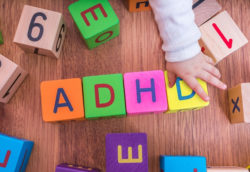Discipline in children, is a very important aspect, to teach your child the basics of good behavior. Teaching discipline, helps children to know what is right and wrong, and grow up with self-control and good manners. Below are a few tips, on how to teach discipline in children.
How To Discipline A Child:
Teaching discipline in children, helps them to become a good disciplinarian, if they know the basics of the discipline.
1. Be Consistent:
As a parent, you have be consistent about particular rules and expectations, if you want your children to be well-disciplined. Children will not be able to know how to act properly every time, when you fail to notice them, or if you are tired, distracted, or because you sometimes just feel sorry for them.
The only way to be consistent about your expectations, is to ensure that you are taken seriously and your child understand the guidelines. Once you have framed a system of discipline, make sure to keep it consistent.
If your child breaks a toy every time, do not offer her a new one. Instead, he/she has to earn a new one by helping out around the house. You have to be consistent, even if you are in public. If your child throws a tantrum in public, teach them that they can always get what he/she wants if they just wait, instead of throwing a tantrum. If, as a couple, you are raising the child together, then be united and should be consistent about your system of punishment.
Do not let the child favor one parent, over the other, as this may cause a a problem in your relationship as well as with your child.
2. Be respectful of your child:
No matter how young your child is, or how frustrated you are, as a parent be respectful of your child. Your child is still a human being with his or her own wants and needs. They even need love and respect from his/her parent or parents. If you want your child to respect you, few things that you keep in mind are:
If you are really angry at your child’s bad behavior, take some time to cool off or settle down, before you say anything. Staying cool, is the best way, as getting angry may only spoil things between you and your child. If you find a glass of spilled soda on your new white rug, do not start disciplining the child immediately. Do not shout on the child or say anything, which you may regret later.
Using bad names for your child, as stupid, will only lower his self-worth and will make him feel worse. Try avoiding situations where you act inappropriately, and where you have to apologize for your behavior later. If you react to any situation immediately, apologize to the child softly, and tell him/her that you shouldn’t have done it firmly.
If parents apologize for their actions, so will children do the same. A parent can become a good role model for a child. Your behavior depends, on the way children adapt to it. They will learn the bad things, from your own bad behavior.
3. Be empathetic:
As a parent, you should be able to appreciate your child’s struggles, problems, and feelings, and consider why your child might be acting out. Here are a few tips on how to be empathetic to your child.
Talking with your child, will help to understand the reasons for your child’s bad behavior. If your child has broken his/her favorite toy, after an aggressive behavior, make them understand that, they might be upset as they have broken their favorite toy. Tell them that, this behavior was inappropriate, and you still understand why they are upset.
4. Communicate your expectations:
It is necessary to make your child know, what good and bad behaviors you will consider, and what are the consequences for a bad behavior. You should make it clear for the child, that if he/she does one thing, that there will always be the same consequence, once your child is old enough to understand your needs. You can communicate your expectations by:
Do not make your child confused. Explain the child if you are trying a new discipline technique, before any bad behavior happens. Take enough time, to make your child understand about good and bad behavior. If you have an older child, make them feel included in understanding, what went well and what did not. Make them know, how you expect them to act. Your child can even choose the rewards for appropriate good behavior, if he/she is old enough.
5. Be authoritative, not authoritarian:
An authoritative parent(R), discusses problems and their solutions with their child. This can be an ideal parenting style, to have clear expectations and consequences for a child, and has love and affection towards their child, whereas an authoritarian parent, even has clear expectations and consequences, but does not show much love/affection to the child. They do not even give the reason for their behavior. This may make the child, fail to understand the importance of certain rules.
A permissive parent, allows the child to do whatever he/she wants, as they the love the child too much and may feel it difficult to say a ‘no’ to them. They will just think the child will develop and the internal system of discipline later. But, this may have a negative impact when the child reaches adulthood, as they may think, they will be able to get whatever they want.
6. Consider the age and temperament of your child:
Fit a particular discipline system for a more mature child. Avoid giving the same discipline, for young children, which you give the same for older kids. Foe children aged 0-2 years, you can try to remove the bad behaviors by teaching them at home itself, and firmly say ‘no’ when they misbehave. For children aged 3-5 years, they should be made to understand, the bad behaviors, before they can happen. Teach the child, the right thing to do instead. For children aged 6-8 years, they can very well understand the negative consequences of their behavior. For children aged 9-12 years, they generally, learn from the natural consequences of their behavior.
By Supraja










































